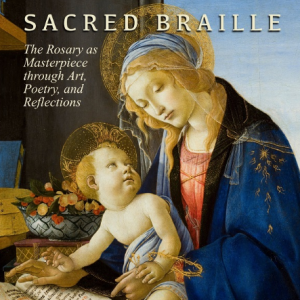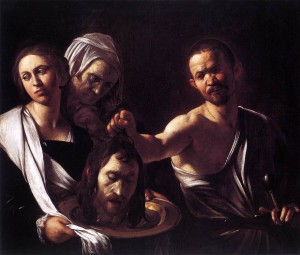The Passion of St. John the Baptist
Earlier this summer, Desert Bread paid homage to the birth of St. John the Baptist. Today’s post honors his passion.
There is no work of art depicting John the Baptist that is more compelling than today’s featured art by Caravaggio, and Peter Gabriel’s “Washing of the Water” is a profoundly fitting song for today’s theme.
The featured poem is one of my favorites that I have ever written and it imagines how Salome, whose dark request sentenced the Baptist to death, might have been transformed by John’s death the way others were transformed by his life.

